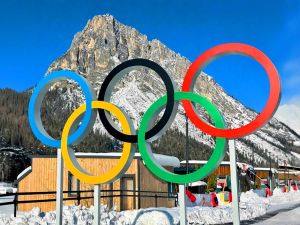Did it happen this year or the year before? How many times have we found ourselves unable to pinpoint the timing of an event, a news story, or a political occurrence, whether local or global? Over the course of 12 months, it’s easy to misjudge the significance of an event, causing us to mistakenly place it further back in time than it really is. This is especially true for those of us who spend the year focusing on market trends and financial news. To help you untangle the timeline of 2024, we’ve curated a selection of some of the year’s most important international news stories and beyond…
The BRICS Summit Expands
At the beginning of the year, the summit of emerging economies known as BRICS welcomed four new members: Ethiopia, Iran, the United Arab Emirates, and Egypt. These nations joined the founding members—China, India, Brazil, Russia, and South Africa. This diverse organization, which aspires to be the hub for emerging economies, has garnered increased attention as it seeks to establish alternative international agreements and institutions. An additional 13 countries have been invited as partners for 2025, while the invitation for Saudi Arabia to join remains open. The list of members and partners hints at an attempt to build an international alliance alternative to the West, though the coalition’s diversity and many members’ preference for maintaining diplomatic flexibility within the G20 and other multilateral forums likely hinder the emergence of a unified bloc.
Earthquake in Japan
In January, a powerful earthquake with a magnitude of 7.4 struck Japan. The epicenter was located northeast of Tokyo, and the tremors were strongly felt in the capital and other regions along the eastern coastline. The earthquake caused significant structural damage, including building collapses and severe disruptions to transportation networks, particularly for high-speed Shinkansen trains and highways. The disaster resulted in at least 462 fatalities and over 1,300 injuries, making it one of the most severe earthquakes to hit Japan since the 2011 Tōhoku earthquake (magnitude 9.0), which claimed over 15,000 lives and triggered a devastating tsunami. The event underscored Japan’s vulnerability due to its location along the Pacific Ring of Fire, an area of high tectonic activity.
Elections in Taiwan
On January 13, 2024, Taiwan held general elections to choose a president and members of the Legislative Yuan. Lai Ching-te, the outgoing vice president and candidate for the Democratic Progressive Party (DPP), won the presidential election with 40% of the votes. Known for his pro-independence stance, Lai’s victory triggered a response from China, which escalated military activities around Taiwan. Shortly after the elections, China sent military aircraft and ships near the island, increasing airspace incursions and conducting intensified military drills throughout the year. Additionally, China reinforced its naval presence in the South China Sea, heightening regional tensions.
Space News
The year 2024 brought significant developments in the space race. U.S.-based company Intuitive Machines made history with its Nova-C lander, the first commercial vehicle to successfully land on the Moon. The lander is conducting experiments and collecting data to support future missions. On September 12, Jared Isaacman performed the first commercial spacewalk during the Polaris Dawn mission. The crew reached the highest orbit since the Apollo program, marking a milestone for private space travel. SpaceX also achieved major progress in its exploration program. On December 9, the company completed a successful static fire test of the Super Heavy rocket, preparing for the seventh test flight of the Starship scheduled for January 2025. SpaceX CEO Elon Musk announced plans for unmanned Mars missions by 2026 to test landing reliability, with crewed missions potentially beginning by 2028.
Haiti’s Ongoing Crisis
In 2024, Haiti faced institutional instability and escalating violence from armed gangs. In March, Prime Minister Ariel Henry resigned under pressure from growing insecurity and gang violence. The Transitional Presidential Council appointed Garry Conille as the new prime minister, but his tenure was short-lived, ending in November with the appointment of Alix Didier Fils-Aimé. Meanwhile, gang violence intensified dramatically. In October, the “Grand Grif” gang attacked Pont-Sondé, killing 70 people, while a massacre in Cité Soleil in December left approximately 180 dead, ordered by gang leader Monel “Mikano” Felix. This instability has exacerbated Haiti’s humanitarian crisis, with over 700,000 internally displaced persons.
Sweden Joins NATO
On March 7, 2024, Sweden officially joined NATO, marking a historic shift after over 200 years of neutrality. Russia’s 2022 invasion of Ukraine prompted both Sweden and Finland to reconsider their positions of military nonalignment. Finland joined NATO in April 2023. Sweden’s accession faced hurdles, particularly objections from Turkey and Hungary. To meet NATO requirements, Sweden announced an increase in defense spending to 2.4% of its GDP.
A World Without Coal
G7 countries reached a landmark agreement to phase out unabated coal use for electricity generation by 2030-2035. The United Kingdom achieved a significant milestone, becoming the first G7 country to eliminate coal entirely for power generation after 142 years of use.
Solar Storm
In 2024, a series of solar storms classified as G5—the highest level on the geomagnetic event scale—impacted Earth. These storms, the most intense since 2003, produced spectacular auroras visible at unusually low latitudes in both hemispheres. However, they also disrupted satellite communications, power grids, and GPS navigation systems, causing temporary disruptions.
Assassination Attempt on Slovak PM Fico
Slovak Prime Minister Robert Fico survived an assassination attempt during a public event, requiring urgent hospitalization. Slovakia’s political landscape remained turbulent in 2024. The presidential election was won by Pellegrini with 54% of the vote, seen as a boost for Fico, his political ally. The attempt on Fico’s life deepened existing political polarization and fueled debates over Slovakia’s international alignment.
Elections in South Africa
On May 29, 2024, South Africa held historic general elections. For the first time since the end of apartheid in 1994, the African National Congress (ANC), Nelson Mandela’s party, failed to secure an outright majority, earning just 42% of the vote. This decline is attributed to perceptions of corruption, economic mismanagement, and failure to address unemployment and social inequalities. The ANC is now seeking alliances to form a stable government.
Elections in India
In India’s 2024 general elections, the Bharatiya Janata Party (BJP) led by Prime Minister Narendra Modi won 240 seats, a decline from 303 in 2019, losing its absolute majority. However, the National Democratic Alliance (NDA) led by the BJP secured 293 seats, crossing the majority threshold. Modi’s government will need stronger cooperation with coalition partners to maintain stability. Despite the drop in seats, Modi’s leadership has been credited with significant economic achievements, with India projected to achieve GDP growth above 7% in 2024.
European Elections
In the 2024 European elections, the European People’s Party (EPP) retained its majority with 185 seats, while the Progressive Alliance of Socialists and Democrats (S&D) secured 137 seats. Across Europe, right-wing and conservative forces gained ground but remained a minority. Negotiations to form the new European Commission were particularly complex, reflecting the fragmented political landscape resulting from the vote. With the rise of right-wing forces and the decline of traditional centrist groups, unprecedented alliances were necessary to ensure a stable majority. The EPP, as the largest group, retained the presidency of the Commission with Ursula von der Leyen.
A Summer of Football
In the 2024 Copa América, Argentina claimed its second consecutive title by defeating Colombia 1-0 in the final held in Miami. The decisive goal was scored by Lautaro Martínez in the 112th minute of extra time. Meanwhile, at UEFA Euro 2024 in Germany, Spain won the championship, defeating England 2-1 in the final in Berlin. This victory marked Spain’s fourth European title, making it the most successful team in the tournament’s history.
Tragedy in Mecca
During the annual Hajj pilgrimage to Mecca, over 1,300 worshippers died due to an extreme heatwave, with temperatures exceeding 50°C (122°F). The highest recorded temperature near the Great Mosque in Mecca was 51.8°C (125.2°F).
Attack in Dagestan
In the Russian republic of Dagestan, coordinated attacks occurred in the cities of Derbent and Makhachkala targeting two synagogues, two Orthodox churches, and a traffic police checkpoint. The assailants used automatic weapons and Molotov cocktails, resulting in the deaths of 17 police officers and five civilians. The attacks stem from deep-seated ethnic, religious, and geopolitical tensions in the North Caucasus, a region with a long history of instability. Dagestan, a multiethnic and multireligious Russian republic, experiences ongoing friction between local ethnic groups and the predominantly Orthodox Russian population, often perceived as privileged.
Assange Freed
Julian Assange, the founder of WikiLeaks, was released from the UK after reaching an agreement with the U.S. Department of Justice. Assange pleaded guilty to conspiracy to obtain and disclose national defense information. In exchange, he was sentenced to 62 months, equivalent to the time already served during his pretrial detention in the UK. After his release, Assange returned to Australia. Following years of legal battles, Assange’s first public appearance occurred in October when he testified before the Council of Europe’s Legal Affairs and Human Rights Committee in Strasbourg. He stated, “I am not free today because the system worked. I am free today because, after years in prison, I pleaded guilty to doing journalism.”
Mpox Epidemic in Africa
In 2024, Mpox continued to pose a global health challenge, with a new variant causing a surge in cases worldwide. This variant, more transmissible than previous ones, was first reported in Central Africa in 2023, resulting in over 29,000 cases and more than 800 deaths, primarily in the Democratic Republic of the Congo and neighboring countries. The World Health Organization (WHO) declared the outbreak a Public Health Emergency of International Concern in August 2024, underscoring the need for coordinated global action.
Attack in Burkina Faso
In northern Burkina Faso, a devastating attack was carried out by fighters from Jama’at Nasr al-Islam wal-Muslimin (JNIM), an al-Qaeda-affiliated jihadist organization. Civilians digging defensive trenches around the town of Barsalogho, at the army’s request, were targeted. The militants indiscriminately fired on workers and soldiers, resulting in a massacre. Death toll estimates vary: some sources report over 150 deaths, while others suggest around 400 fatalities.
Paris Olympics
The Paris 2024 Olympics saw the United States leading the medal tally, followed by China and France. From August 28 to September 8, the Paralympics were held, where China topped the leaderboard with 220 medals, followed by Great Britain and the United States. France secured 75 medals, ranking eighth.
Floods Devastate Valencia
The Valencia region in Spain experienced catastrophic flooding caused by a Depresión Aislada en Niveles Altos (DANA), a meteorological phenomenon that brought exceptional rainfall. In some areas, such as Chiva, nearly 500 mm of rain fell in a single day, equivalent to the annual average. The disaster claimed over 200 lives, with thousands missing. Entire communities were submerged, roads turned into rivers, and infrastructure severely damaged. In the city of Utiel, floodwaters reached three meters, trapping many residents.
Moldova Edges Closer to the EU
On October 20, 2024, Moldova held a constitutional referendum to approve its accession to the European Union. The results were razor-thin, with 50.39% voting in favor of the constitutional amendment and 49.61% against.
U.S. Presidential Elections
The November 5, 2024, U.S. presidential election saw Donald Trump return to the White House after defeating Democratic candidate Kamala Harris. Trump secured 312 electoral votes, surpassing the 270 needed for victory, while Harris received 226. The campaign was unprecedented, with outgoing President Joe Biden choosing not to run for re-election, paving the way for Harris as the Democratic candidate. Trump’s campaign was marked by two assassination attempts.
Labour Party Returns to Power
In the UK, the Labour Party, led by Keir Starmer, achieved a historic victory, ending 14 years of Conservative rule. Labour won 411 seats out of 650, securing a majority of 174 seats, marking its best result since 1997. Meanwhile, the Conservative Party suffered a historic defeat, winning only 121 seats—the worst result in its history.
*As with all investing, financial instruments involve inherent risks, including loss of capital, market fluctuations and liquidity risk. Past performance is no guarantee of future results. It is important to consider your risk tolerance and investment objectives before proceeding.





